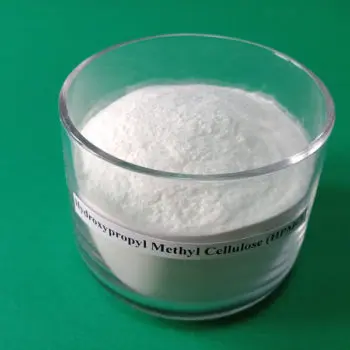
When collaborating with an HPMC manufacturer, establishing an effective partnership is essential to ensure quality, consistency, and seamless project execution. Hydroxypropyl Methylcellulose (HPMC) is widely used in industries like pharmaceuticals, construction, and food due to its versatile properties. Here are some crucial tips to help guide your experience when working with an HPMC supplier.
1. Understand Your Product Requirements
Before reaching out to an HPMC manufacturer, have a clear understanding of your specific needs. HPMC comes in various grades and specifications, which can significantly affect its performance in different applications.
- Determine the Viscosity Level: Different applications require specific viscosity levels. For example, construction applications might need higher viscosity HPMC, while food-grade HPMC could have different standards.
- Specify Purity Standards: Make sure to communicate the desired purity level needed for your product, as pharmaceutical and food applications require high-purity HPMC.
2. Research and Choose the Right Manufacturer
Selecting the right HPMC manufacturer is crucial for the success of your project. The supplier should meet your quality expectations and comply with industry standards.
- Check Certifications and Compliance: Verify that the manufacturer adheres to regulations such as ISO certifications or GMP compliance, particularly if you are in the pharmaceutical or food sector.
- Assess Industry Experience: A manufacturer with extensive experience in producing HPMC for your specific industry can provide better insights and tailored solutions.
3. Evaluate the Manufacturer’s Production Capacity
Production capacity and reliability are essential when choosing an HPMC manufacturer. Ensure that the supplier can meet your volume requirements consistently and within the needed time frame.
- Discuss Lead Times: Confirm the lead times for production and delivery. Reliable manufacturers should be able to provide consistent timelines that align with your production schedule.
- Scalability: If your business needs expand, make sure the manufacturer has the ability to scale production accordingly.
4. Quality Control Measures
Quality assurance is paramount when dealing with HPMC manufacturers. Your end products’ reliability often depends on the quality of raw materials.
- Review Testing Procedures: Inquire about the manufacturer’s testing protocols. They should include measures for assessing viscosity, moisture content, and particle size.
- Ask for Quality Reports: High-quality manufacturers provide detailed reports and certificates of analysis for their HPMC products.
5. Communicate Clearly and Maintain a Strong Partnership
Maintaining open and transparent communication with your HPMC manufacturer is key to avoiding potential issues and ensuring a seamless production process.
- Establish a Communication Plan: Regular updates and clear communication help prevent misunderstandings. Make sure there is a designated contact person for all inquiries and updates.
- Provide Feedback: Don’t hesitate to give feedback on the product quality or any challenges you encounter. This can help the manufacturer make necessary adjustments and improve future batches.
6. Request Samples for Evaluation
Before committing to bulk purchases, request samples to test the quality and compatibility of the HPMC with your application.
- Perform Internal Tests: Conduct tests in your own lab or production facility to ensure the HPMC meets your standards and works well with your product formulation.
- Seek Technical Support: A reputable HPMC manufacturer will offer technical assistance to help you integrate their product into your process effectively.
7. Understand the Manufacturer’s Return and Warranty Policies
Unforeseen issues can arise, so it’s important to understand the manufacturer’s policies on returns and warranties.
- Clarify Return Conditions: Make sure the policy for returning products that do not meet quality standards is clear and acceptable.
- Discuss Warranty Terms: If applicable, review any warranties provided for the HPMC product to cover potential issues.
8. Negotiate Pricing and Payment Terms
Price is an essential factor when choosing an HPMC manufacturer, but it should be weighed alongside quality and reliability.
- Request a Detailed Quote: Obtain a comprehensive breakdown of costs, including any additional fees for custom specifications or expedited shipping.
- Agree on Payment Terms: Ensure that the payment terms are clear and work with your budget. This includes understanding any initial deposit requirements or full-payment timelines.
Conclusion
Working with an HPMC manufacturer requires careful planning, open communication, and thorough research to ensure the quality and consistency of your final product. By following these tips, you can build a strong and reliable partnership with your supplier, helping your business thrive and meet its production goals. For more information on high-quality HPMC, visit HPMC Factory.